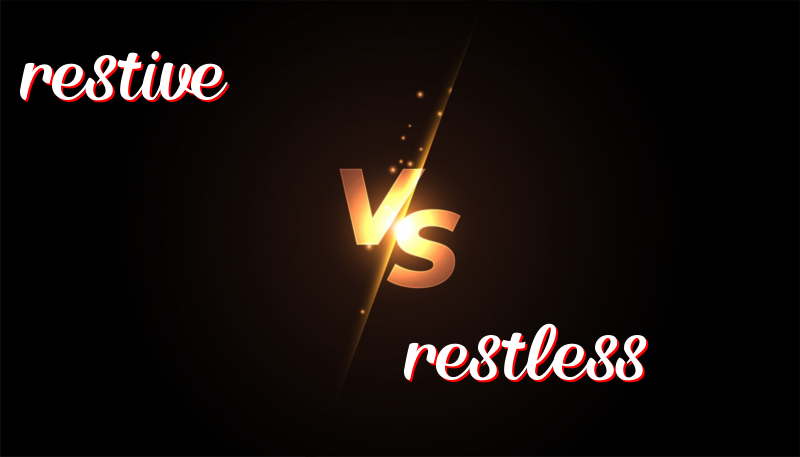Restive vs Restless: Understanding the Difference
Restive vs Restless
Today, we are going to talk about two words that may sound similar but have different meanings: restive and restless. Let’s find out more about these words:
History:
The word “restive” comes from the Latin word “restare,” which means “to remain still.” On the other hand, “restless” has its roots in the Old English word “restlēas,” which means “devoid of rest.”
How to Use Them:
Restive is used to describe someone who is resisting control or impatient under restriction. Restless, on the other hand, describes someone who is unable to keep still or quiet.
Trick to Remember the Difference:
Think of “restive” as a horse that is resisting the rider’s commands, and “restless” as a child who can’t sit still. This might help you remember the difference between the two words.
Examples of “Restive” Usage:
1. The students grew restive during the long assembly.
2. The employees became restive when they were not paid on time.
3. The passengers grew restive as the flight got delayed.
4. The athlete was restive with anticipation before the big game.
5. The artist felt restive under the constraints of the project.
Examples of “Restless” Usage:
1. The puppy was restless and kept running around the house.
2. The restless crowd eagerly awaited the start of the concert.
3. The patient was so restless in bed that she couldn’t fall asleep.
4. The toddler was restless and refused to take a nap.
5. The storm made the sea restless, with waves crashing against the shore.
Summary:
Remember, “restive” is about being impatient and resisting control, like a rebellious horse. “Restless” is about the inability to keep still or quiet, like an energetic child. Keep this in mind, and you’ll always know which word to use!

Leave a Reply
You must be logged in to post a comment.